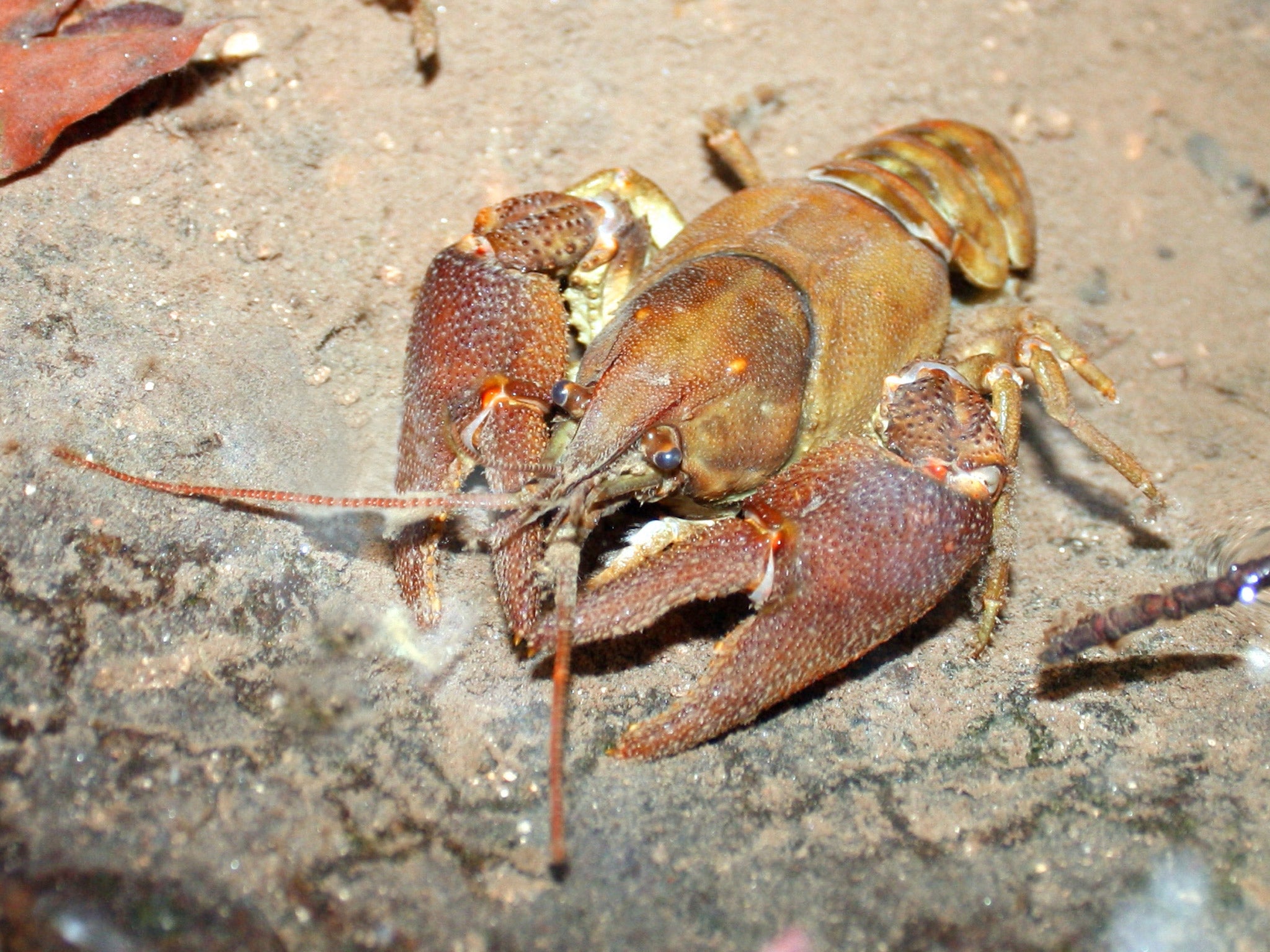Native British crayfish facing extinction following mysterious outbreak of plague

Your support helps us to tell the story
From reproductive rights to climate change to Big Tech, The Independent is on the ground when the story is developing. Whether it's investigating the financials of Elon Musk's pro-Trump PAC or producing our latest documentary, 'The A Word', which shines a light on the American women fighting for reproductive rights, we know how important it is to parse out the facts from the messaging.
At such a critical moment in US history, we need reporters on the ground. Your donation allows us to keep sending journalists to speak to both sides of the story.
The Independent is trusted by Americans across the entire political spectrum. And unlike many other quality news outlets, we choose not to lock Americans out of our reporting and analysis with paywalls. We believe quality journalism should be available to everyone, paid for by those who can afford it.
Your support makes all the difference.The UK’s endangered native crayfish species could be completely wiped out after a deadly plague was identified in one of its few strongholds.
Around 40 per cent of Britain’s remaining 20,000-strong white-clawed crayfish population is expected to die within a year after the government confirmed the existence of crayfish plague in the River Allen in Dorset.
All 8,000 of the river’s white-clawed crayfish are forecast to perish at the hands of the plague, a fungal disease carried by the larger Signal Crayfish from America, which is immune to it. Matt Shardlow, head of the Buglife insect charity, said: “Generally there’s no coming back once the plague arrives and I think it means we’re looking at the imminent end of the species across the south west,” adding that there is a real danger it could eventually spread across the whole country.
“It’s particularly worrying that they don’t seem to have found any American crayfish in the river, just the plague, which suggests it was spread by anglers or someone else paddling around,” he added.
The UK’s largest invertebrate outside the sea occupies a special place in the nation’s heart, for example in old woodcut prints, he said.
Amanda Broom, Dorset Wildlife Trust Conservation Officer, said: “It is very sad that White Clawed Crayfish have been infected with the crayfish plague as this was one of just three populations remaining in Dorset.”
The white-clawed crayfish is the UK’s only native crayfish species. Other populations exist in the UK in areas such as the Midlands and East Anglia, but numbers are sparse and traditional strongholds in the Peak District and Ribble river in the North West have been almost wiped out. The species is on the endangered list.
The spread of the disease to the River Allen will accelerate the decline of the species, which is already estimated to have tumbled by 95 per cent since its peak. Once the disease infects crayfish, they are typically killed within weeks.Signal crayfish were brought to the UK in the 1970s, with many escaping into waterways through canals and some released into water courses because they can be fished for their tails. Their damage has been intensified by the ease with which they spread through waterways.
As well as spreading the plague – known as Aphanomyes astaci – they are able to outcompete the natives for food supplies such as flies, fish and fish eggs because they are much bigger.
The red-brown species, which look similar to small lobsters, also damage riverbanks when they dig the deep borrows they use to hibernate in the winter.
Join our commenting forum
Join thought-provoking conversations, follow other Independent readers and see their replies
0Comments